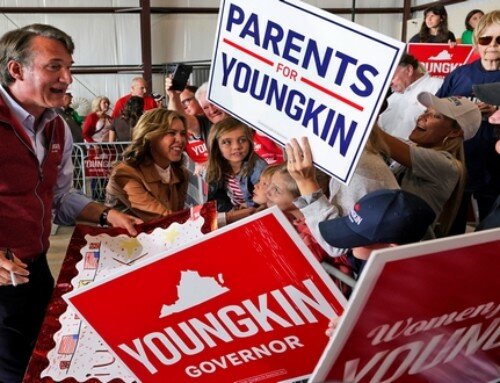While free press is important, there are some things that need to be left out of teen magazines. Teen Vogue has gone from being another fashion magazine simply geared toward teenagers to attempting to influence their thoughts far beyond outfit choices and makeup dupes. Over the past couple years, Teen Vogue’s articles are becoming more and more problematic.
Who is Karl Marx: Meet the Anti-Capitalist Scholar
This article describes socialism as the people having control over the community and their work rather than the rich and the government. It calls to “resist oppressive political leaders and spark political revolution.” In the article, Teen Vogue interviewed two teachers that teach communism in their classroom. One high school teaches their English class to “overthrow” him by taking control of their own work.
Using teachers as examples in this type of article allows for teenagers to easily relate to the students in the passage. They also have an engraved respect for teachers, so they will likely view them as knowledgeable. The other is a college professor who teaches students that the free market is a myth and capitalism evolved from violence.
Teen Vogue uses this article to convince teens that communism is far better than capitalism and it allows them to be in charge of their own labor, unlike capitalism, where they are working for the benefit of someone else. This article leaves out many truths about communism in order to make a good impression on readers.
Why Sex Work is Real Work
This article was written by a doctor who is working to decriminalize sex work in South Africa. One of the stand-out lines in the article is, “I am a doctor, an expert in sexual health, but when you think about it, aren’t I a sex worker? And in some ways, aren’t we all?” That’s right, Teen Vogue is telling their readers, that are mostly minors, that they are sex workers. The article talks about how the relationship between “coworkers” starts off sexual and may become emotional and psychological. This promotes the hookup culture that is rapidly spreading today.
The article speaks on the need for sex work because it provides consumers with the companionship that they may need. Instead of fulfilling these needs through an authentic human relationship, the writer suggests that they simply hire a sex worker.
The author argues that the criminalization of sex work is a “form of violence by governments.” The author argues this by saying that sex work helps the economy. We know that it is likely that tax is not paid on this dollars earned in this practice.
The author leaves teen readers with a call to action:
“We must support efforts to address structural barriers and ensure the implementation of a comprehensive package of health services for sex workers as advised by the World Health Organization, and fund public campaigns to decrease stigma. Evidence, not morality, should guide law reforms and sex work policy for full sex work decriminalization.”
This article may leave teens to believe that they are simply sex objects to be used to fulfill the “needs” of others, causing for their perception of dating and relationships to change drastically.
The Racist History of America’s Patriotic Anthems
The introductory line of this article catches one’s attention, “OG History is a Teen Vogue series where we unearth history not told through a white, cisheteropatriarchal lens.”
Most teens, or even adults, likely don’t know the definition of cisheteropartiarchal, which, for the record, is not a real word. Here’s the definition from Facebook, “Cisheteropatriarchy, noun. “A system of power based on the supremacy & dominance of cisheterosexual men through the exploitation & oppression of women and the LGBTQIA.”
That’s not even the first line of the article, and it’s already problematic. Teens are being taught that throughout history, women and LGBTQIA members are always oppressed and exploited by white men.
Now, let’s get into the article itself. The article speaks of the racism of singer Kate Smith and her 1939 rendition of “God Bless America”. The article also claims that Columbus’s racism “landed him his own holiday,” stating, “In reality, racism and patriotism go hand-in-hand.” That’s right, Teen Vogue is telling teens that if they love their country, they are racist. It calls for the South to cease playing songs that mention “Dixie.” Why? It can be viewed as racist because it’s related to the American Revolution. Finally, the article talks about the Star Spangled Banner. The author tells readers that this song must be racist since it was penned in 1814, while African Americans were still enslaved. The article ends on telling teens, specifically teens of color, that these anthems are inherently racist and they should not stand, sing, or salute because they are “black men in a white world.” While no one would argue about America’s history of racism, Teen Vogue takes the article a bit too far, calling out songs from centuries ago just due to the time period they were written in. This article attempts to convince teens that if they are white, they are racist. If they are not, they shouldn’t love their country.
How to Get an Abortion if You’re a Teen
Arguably the most well-known controversial Teen Vogue article, with skeptism across the board, is this advice column on getting an abortion as a minor without parental consent, or even knowledge. In this article, a 16 year old has written Teen Vogue and asked if there would be a way to get an abortion without her parents finding out because they are against the practice. The writer tells the teen that if she’s old enough to become a mother, she’s old enough to decide if she wants to give birth. The article states, “Having access to abortion should be your right, regardless of your parents’ beliefs.”
Next, she talks about how not every state legislature agrees with her, and tells the reader to know her state’s laws regarding abortion. She tells readers that most anti-abortion Americans have had an abortion, but provides no statistics. She tells readers that it is possible to get an abortion as a teen by saying that you fear your parents would be violent against you if they knew. To do this, a teen would have to testify before a judge, and be awarded access to an abortion. The writer warns the teen that this will take time, and abortions get more expensive the longer you wait. The teen is encouraged to contact “local abortion funds” to help pay for the procedure.
Teen Vogue claims to empower young women. Instead, they choose to encourage young women to rebel against their parents and kill their potential future readers. This article is the heartbreaking reality of what teens are taught today.
Teen Vogue has another article titled, “What it Was Like to Get a Later Abortion”, on the same topic, stressing that women of all ages should be granted an abortion at any age and stage of pregnancy. This teaches teen girls that the only solution to an unexpected pregnancy is abortion.
These are just a few of the problematic articles where Teen Vogue promotes their own social and political agendas to impressionable teenage readers. Free press is important, but articles like these do not belong in minor’s magazines.
Whitney E
CABINET
Whitney is a senior majoring in communication at Mississippi State University. When she's not preparing for law school, you can find her online shopping or planning a trip to Disney World. She loves Ronald Reagan, traveling, and all things preppy.











